Cloud Atlas (2012)
Directed by: Andy Wachowski, Lana Wachowski, Tom Tykwer
Written by: David Mitchell
Starring: Ben Wishaw, Halle Berry, Hugh Grant, Jim Broadbent, Jim Sturgess, Susan Sarandon, Tom Hanks, Xun Xhou
[youtube]https://www.youtube.com/watch?v=hWnAqFyaQ5s[/youtube]
Cloud Atlas is just 1 of the 57 UK premieres featuring at the 2013 Glasgow Film Festival. Actor James D’Arcy appeared briefly before the Sunday evening screening to warn the audience that if they hadn’t read the 2004 bestselling novel then they might need to revisit the film a few times before they could comfortably digest this convoluted but visually stunning fantasy epic. On paper, the film appears to be the biggest gamble of 2013. With an independently financed budget of $102 million ($20 million of which was reportedly funded by Tom Hanks) and featuring three directors and a running time of over three hours, there were a lot of reputations at risk. The question is whether it has been worth the gamble?
Trying to decipher what comes to pass in Cloud Atlas is as difficult as attempting to explain the offside rule to someone who knows nothing about football. I had never read the novel before viewing the film but I understand the author approached the six stories one at a time whereas in the feature film, the stories are intertwined. Fortunately this seems to be a wise move as it helps clear up how each character is related to another in each of the varying time zones. The directors cleverly use the same actors and actresses in different roles to promote this and there is the reoccurring theme of the ‘shooting star’ birthmark which travels from one soul to another. Some reincarnations of characters become more righteous while others become increasingly corrupt and evil.
The first story, set in the South Pacific in 1846, follows the adventures of Adam Ewing, a young attorney from San Francisco and his dealings with a pompous plantation owner played by Hugh Grant. After passing out when witnessing the brutal treatment of a slave called Autua, he wakes to find the seemingly friendly Dr Goose (Tom Hanks) pouring medicine into his mouth. He explains to the attorney that he is sick but that he can cure the illness. When Ewing is later confronted by Autua and reluctantly accepts to help the slave, the unlikely friends become emotionally bound. It transpires that Autua might be Ewing’s only hope of ever returning home to his beloved wife and changing his outlook on the moral implications concerning slavery.
We then move on to 1936, where a talented, young composer called Robert Frobisher (Ben Wishaw), travels to Scotland to become protégé of Vyvyan Ayrs (Jim Broadbent). It soon becomes clear that Ayrs is jealous of his talent and is intent on using the young man’s work as his own. One work called the Cloud Atlas Sextet has him in awe and it transpires that the inspiration behind the piece may have come from a premonition of things that are yet to pass. Links between both leading characters in the first two stories become apparent when Frobisher writes to his lover, Rufus Sixsmith (James D’Arcy) about reading the diaries of Adam Ewing.
The third story, based in 1973, is reminiscent of the China Syndrome (1973) with stubborn, reporter Louisa Rey (Haley Berry) following up allegations by an ageing Sixsmith that there are dubious goings on within a local power plant. After visiting the plant and meeting the shady president (a wonderfully performance by Hugh Grant), she is caught sifting through files by an employee played by Tom Hanks. Rather than call for security, the engineer experiences a connection with the reporter and agrees to help her. When Sixsmith is murdered by a corporate funded hitman, Rey finds the letters he shared with Forbisher and is captivated by them. She also hears the Cloud Atlas Sextet in a music shop and comments to the shop assistant as to how beautiful it sounds.
The most light hearted of the stories is set in 2012 and features a pompous book publisher (Jim Broadbent) skip town when an Irish gangster turned writer sends his hoods over to collect the profits of his bestseller. He turns to his rich brother (Hugh Grant) for help but ends up escaping one trap and landing in another. The consequences of this story are captured in a movie that inspires the lead character in the next tale.
In Korea 2144, fabricants are constructed to fill the demand for cheap labour in a fast food giant. One fabricant, Somni-451 (Xun Zhou) questions her role in society after viewing an old, b&w film, featuring the previous story of the publisher. With the help of the mysterious but heroic, Hae-Joo Chang (Jim Sturgess) she leads an uprising against this immoral use of life and attempts to expose the truth regards the workers’ so-called retirement package.
In the final story, set in 2321 and 2346, Tom Hanks plays a cowardly goat herder called Zachry, whose tribe worship Somni (from the previous story) and are terrorised by a group of repellent cannibals. Meronym (Halle Berry) arrives from a more advanced civilization but one that is plagued by illness. She requires to visit a temple in the mountains for a potential cure but no one in the local tribe is willing to guide her there due to their fear as to what lurks within. When Meronym saves a sick tribal girl from a likely death, Zachry agrees to undertake the arduous journey with her.
If there appears to be a hell of a lot of plot involved with Cloud Atlas then you’d be correct. I have only scratched the surface as to the links, references and relationships between the characters and events of each story. When actor James D’Arcy returned for a comical Q&A session after the premiere screening, one Glasgow woman commented that she found the film compelling and exciting but didn’t know what the hell was going on for most of the running time. To the creators’ credit, the multiple roles given to the actors and the merging of the stories do make this aspect a lot clearer than if they had stuck with the narrative of the novel. Yet this multiple role format does have its negative aspects. Firstly the prosthetics, especially in the Tokyo story, are ropey to say the least. Hugo Weaving’s villain looks like Spock’s ugly cousin. We have European actors playing Asian characters, Asian actors playing European characters and the makeup ranges from impressive to laughably bad.
The same cannot be said for the visuals and sound effects. Cloud Atlas looks and sounds amazing. Some of the landscape shots in 2321 story are stunning. There is no doubt that a large chunk of the $100 million budget was ploughed into this. In contrast to the pedestrian pace of the first half of the film, things speed up significantly in the second with some excellent action sequences, including an adrenaline pumping chase setpiece in a futuristic Tokyo. There is also a fair share of bloody violence in the final third which must have stretched the 15 certification to its limits. One neck cutting effect is particularly gruesome.
The performances are good for the most part with Hugh Grant particularly impressive in a brace of roles as the villain. Tom Hanks suffers most in his numerous guises, especially when he attempts to tackle Scottish and Irish accents. The Glasgow audience were in hysterics during these sequences.
Cloud Atlas is not perfect by any means but is a great fantasy film and will take some effort by this summer’s blockbuster to shift from top spot. The eclectic mix of action, romance, comedy, drama and horror are expertly blended within the intertwining tales. I was totally submerged within the various battles against injustice with each story holding up against the other. I can’t wait to repeat the experience when Cloud Atlas goes on general release in the United Kingdom come February 22nd.
Rating: 










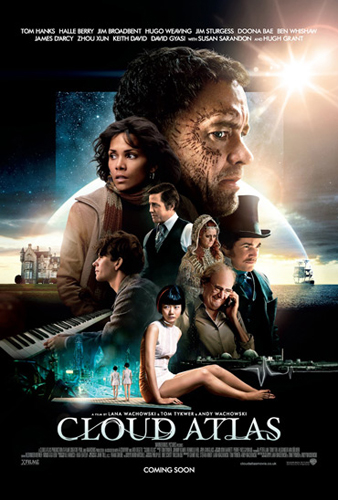
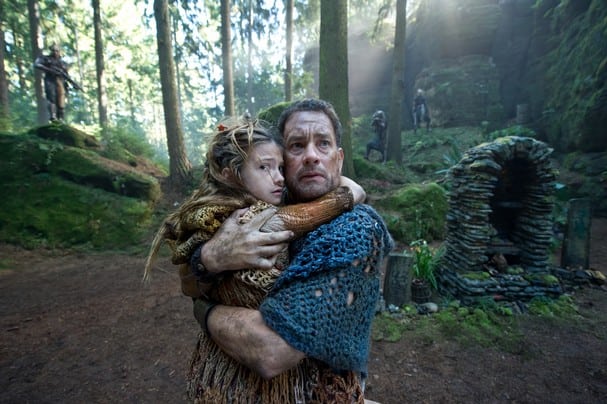
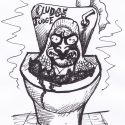
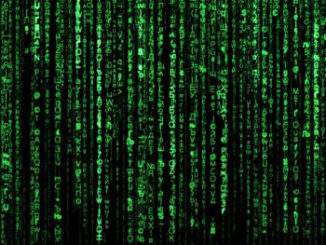

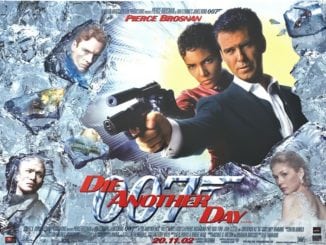
Be the first to comment